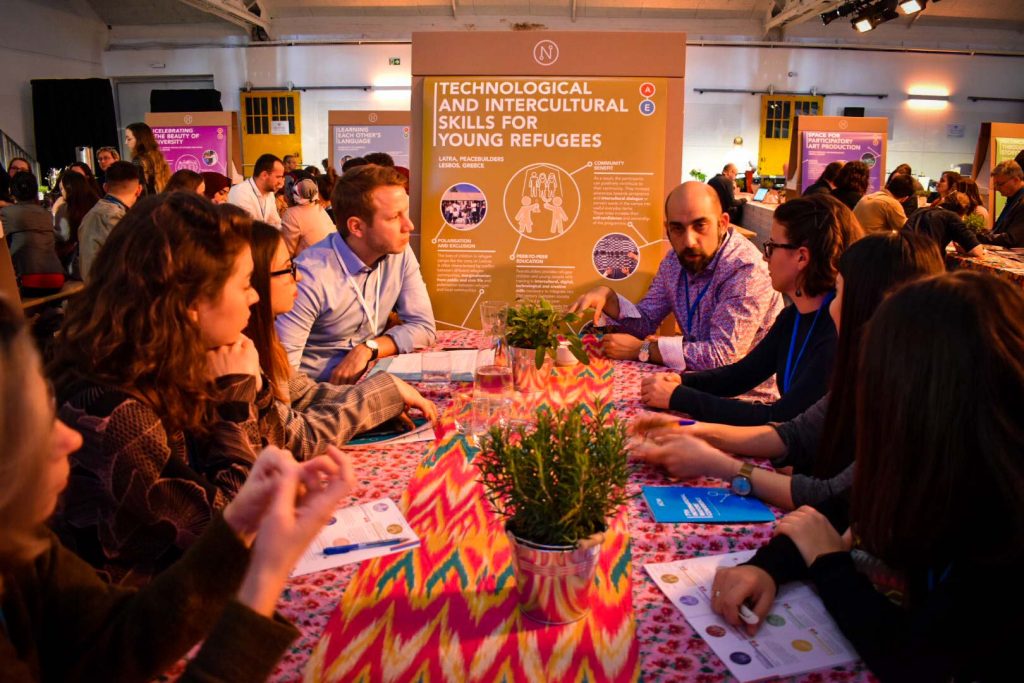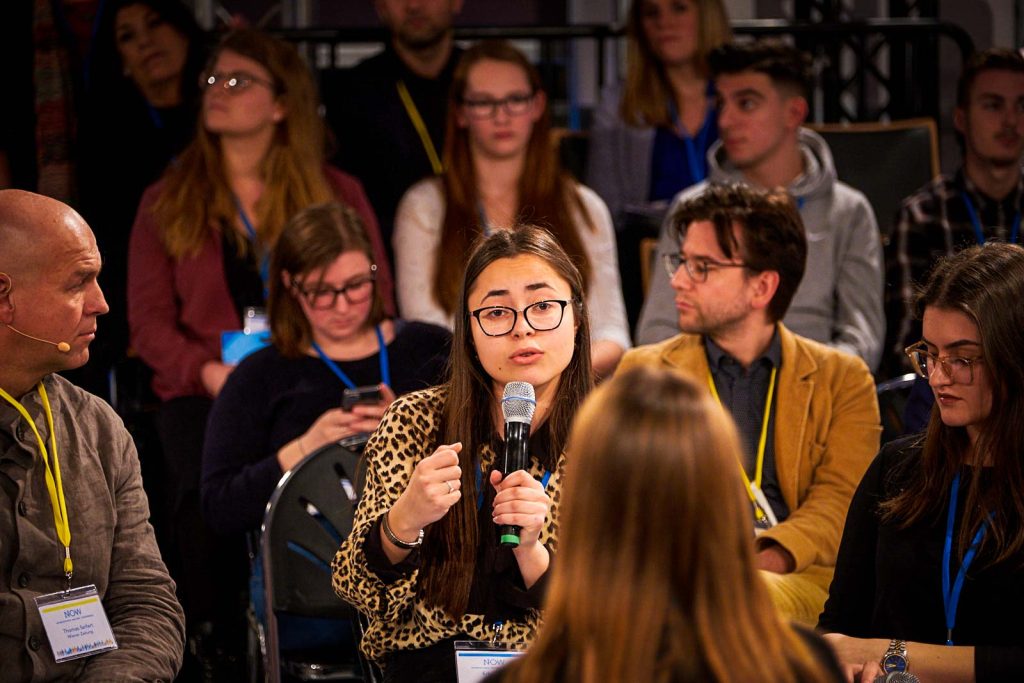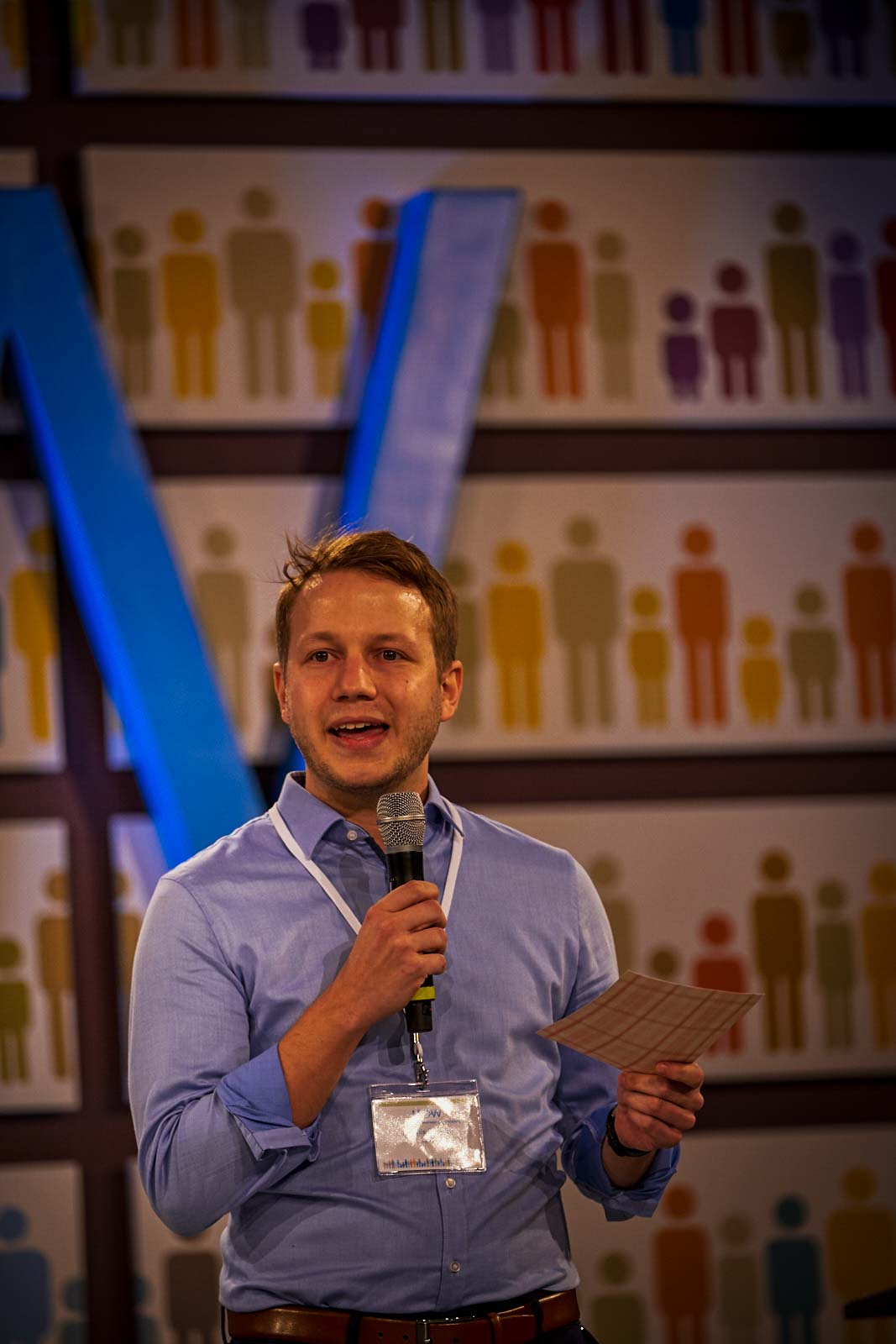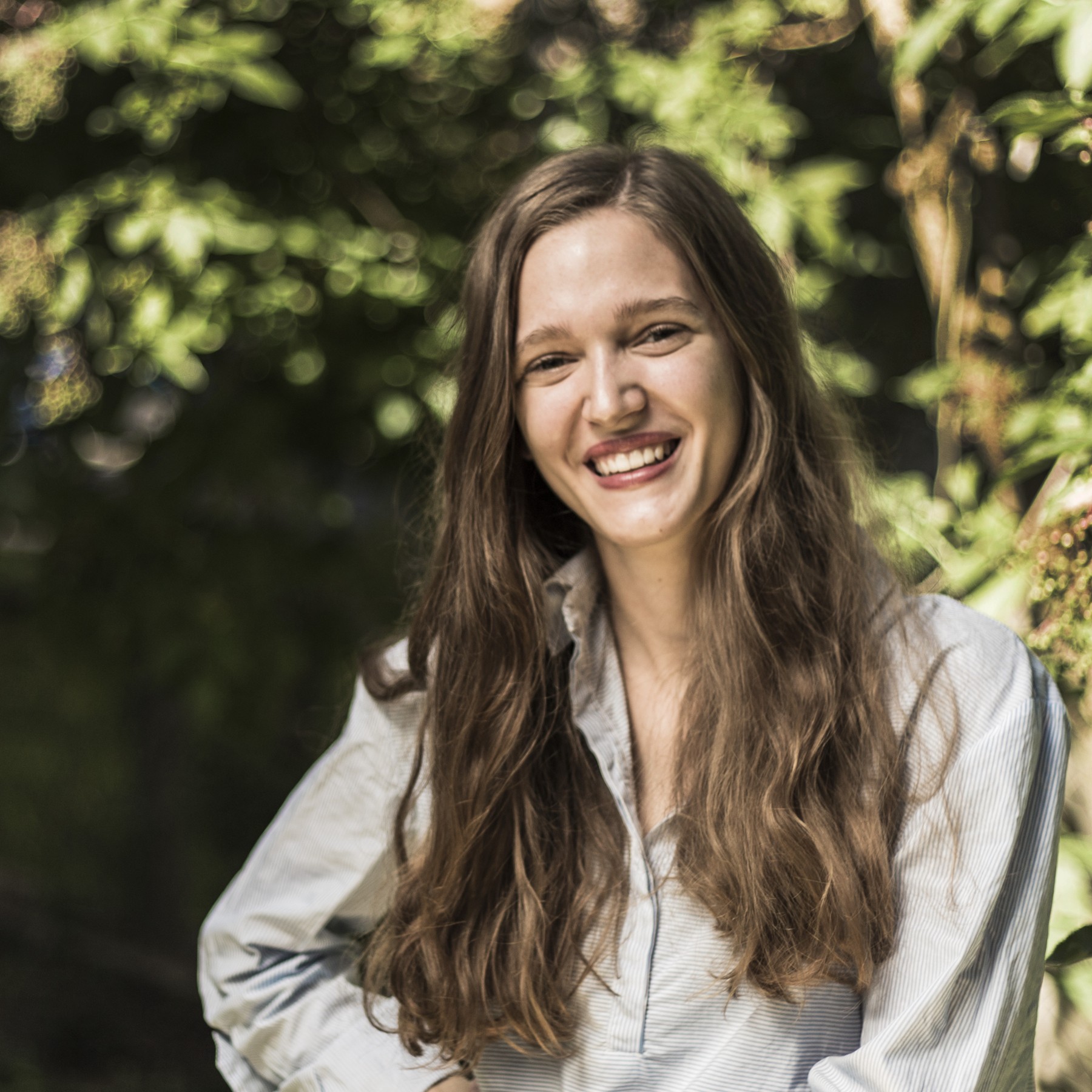Young Leader Mathis Dippon is convinced that change is best driven on a local level. This conviction motivates him to design, plan, and constantly re-imagine events that help communities tackle current and future challenges. We sat down with Mathis to learn more about his inspiring work and find out what makes this Young Leader tick.
Mathis Dippon plans events that encourage change. He is a programme manager at The Innovation in Politics Institute in Vienna. The Institute aims to “identify, develop and apply innovations in politics”, i.e., it helps international leaders drive change. That means providing training, networking opportunities, and lots of space to exchange ideas. One of the Institute’s programmes is ACT NOW, led by our Young Leader. Mathis plans which events ACT NOW hosts, which projects they start, and which programmes they undertake together with mayors from around the world.
As Luck Would Have It
Sounds like Mathis does some pretty cool stuff, right? How did he manage to get there?
When he was still a student, Mathis travelled a lot and lived in places all around Europe. He took Erasmus semesters abroad and sought internship opportunities in various cities. As he talks about his travels, Mathis’ face lights up: “I have always been fascinated by discovering different cities and finding out where people meet, how the public transport system works.”
This fascination with local structures and peculiarities was later reflected in his master’s thesis. In it, Mathis focused on ways to aid social cohesion on a local level and within a diverse society. Mathis describes the local level as “a space that is slightly less complex than the world we live in”. On a local level, he says, people’s needs can be clearly identified and addressed. That’s why he believes change-making should be focussed right there.
So, when Mathis was writing his master’s thesis about social cohesion on a local level, ACT NOW (at the time an independent NGO) organised a conference about exactly this topic. Our curious Young Leader got in touch, applied for an internship, and was accepted. And – you’ve guessed it – he was able to stay with the company. Mathis soon became involved in other parts of ACT NOW and eventually worked his way up to programme manager.

A Tricky Exercise: Planning Great Events
Now, what kind of programme does Mathis manage exactly? Currently, he and the ACT NOW team organise a mayors’ as well as a youth network and host the ACT NOW Mayors’ Conference.
The mayors’ conference brings together international leaders, public innovators, and young people from around the world. They exchange ideas, share best practices, and develop new approaches to improve cities. While that might sound like an average conference, it is far from it. Mathis stresses:
“We don’t want to organise conferences where there are a couple of panel discussions, and then everyone heads to the buffet.”
Conferences curated by Mathis and his team are designed with inclusiveness in mind. They offer a creative, non-hierarchical space where ideas can flow freely. For instance, this is what their conference in 2020 looked like:
Mathis and the ACT NOW team also host field trips. Members of the mayors’ network can join these field trips and visit places around the world. In each place, they learn about the local challenges and how these are overcome. That way, participants get insights into best practices from around the globe. The idea is that international leaders can learn from each other and implement approaches from other cities in their communities. Mathis highlights: “While our network couldn’t be more diverse – we’ve got poor and rich, big and small municipalities, different languages and cultures – what I find interesting is that many of these municipalities still face the same challenges.” That’s why sharing best practices is one of the main tasks of ACT NOW.
However, over the last few years, Mathis and his team realised that it takes even more than collecting and sharing best practices to drive change. With a sigh, Mathis confesses:
“For some time, the assumption was: okay, we’ve got these best practices. Now take them and implement them in your city. And, sadly, that’s not how it works. That was also a bit of a painful realisation.”
What It Takes to Drive Change
Referring to this realisation, Mathis says that one of the skills he has needed most is being able to design events that really help drive change. He and his team realised that organising great conferences and sharing best practices was not enough.
This eventually led them to invent something entirely new: Local Change Labs. Within these workshops, cities can develop solutions themselves, focussing specifically on their community and their context. This resonates with Mathis’ core belief: if you really want to drive change, do it on a local level.
Local What Labs?
The Local Change Labs, or simply Local Labs, were inspired by design sprints and hackathons. These bring together different people who – over a short period of time – brainstorm and exchange approaches to a specific goal. Often, this leads to entirely new, innovative solutions.
Slightly adapted, this concept forms the basis of the Local Labs. These last for two and a half days and help individual municipalities develop solutions for specific local challenges. It is up to each city to decide which challenge they want to tackle in the Local Lab.
Each Local Lab is unique and its progress, as well as results, depend mostly on the municipality involved. However, ACT NOW provides a general structure for the Local Lab, guiding the city through the process.
The first step for the city is to form a team of five to ten people. This team needs to fulfil several requirements:
- Two to three young people (aged 18–30) must be part of it.
- There should be a roughly equal balance of genders.
- Team members should come from different backgrounds (e.g., civil servants, business leaders, council members, civil society representatives, etc.).
The team will then select a ‘Sprint Mentor’. This mentor is instructed by ACT NOW and will be responsible for guiding the team through the three stages of the Local Lab. These are:
- Understand & Define: team members determine the goal they want to reach and brainstorm potential approaches.
- Envision & Ideate: next, they refine selected approaches, develop several projects, and eventually pick one of them.
- Prototype & Test: finally, the team makes a detailed plan of the chosen project. Afterwards, the municipality has the chance to test their project in the field and adapt it further.
To wrap things up: a local team identifies a context-specific challenge and develops solutions responsive to their needs. ACT NOW facilitates this process by guiding the team, providing it with expert knowledge as well as inspiring input, and by sharing best practices.
Wait, what? We thought sharing best practices wasn’t the way to go! Well, that’s not entirely true. Best practices are great, Mathis highlights. As long as they are not the only input a municipality receives. Plus, they must be contextualised as each local environment is unique.
In the Local Lab, the team develops their own solutions, and best practices only serve as a source of inspiration. Mathis explains: “At a certain point, we will tell them how other municipalities did it. And then they can say: ‘Okay, that might be an interesting idea. In our context, we can use this idea like this or like that’”.

Outlook
Mathis has even bigger plans for the future: “My passion, and also my aim, is to actually be part of the solution in the decades to come.” Mathis is certain that change is needed to overcome current and future challenges. He wants to do his bit and facilitate that change. Of course, our Young Leader’s passion remains with the local level. His plan is to help municipalities and cities by designing even better processes and events and spreading a positive vision.
“People always talk a lot about having to sacrifice something and how much something is going to cost and what kind of burdens we’ll have to face. I see it differently. I think there is a more relaxed, healthier, greener future ahead. And I want to contribute to realising this vision in as many cities and municipalities as possible.”
Words of Advice
Considering his big dreams for the future, it is no wonder that Mathis picks this quote as his favourite piece of advice: “Worry less about what you want to be, and think more about what you want to do”. It’s a quote by Barack Obama, but “of course, he didn’t give that advice to me personally,” Mathis says with a smile.
Our Young Leader himself has some wise words to share as well. When asked for advice for fellow CityChangers, Mathis stresses that – if you want to drive change – it’s important to get involved in your local community. He, for instance, joined his hometown’s council at a very young age. He was the students’ representative of all schools in the area and, therefore, allowed to participate in council meetings. However, he highlights that this is not the only way to be engaged.
When getting involved in the local community, he says, it’s important to do something that you are passionate about and good at. Mathis laughs and concludes: “Maybe that’s a bit of a cliché phrase, but only when you are fascinated by something can you do something that fascinates others.”


